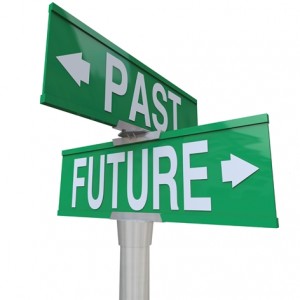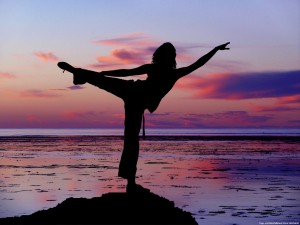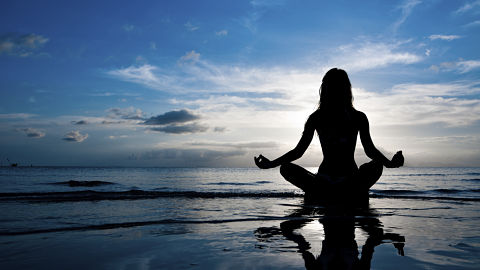An educational center in southern California sent its annual appeal for donations. The director’s theme is: “There is space.” But it ought to be put as a question: Is there space? For space in every sense is shrinking, and fast.
 Quoting from the director’s letter, he intones, “there is space, which all of our work points toward…” Expanding on his evocation, he says, “Space—the physical places and opportunities to learn about oneself, whether young or old.” Yes, it’s important, indeed essential that there be such places, and that’s what a school is truly for.
Quoting from the director’s letter, he intones, “there is space, which all of our work points toward…” Expanding on his evocation, he says, “Space—the physical places and opportunities to learn about oneself, whether young or old.” Yes, it’s important, indeed essential that there be such places, and that’s what a school is truly for.
Of course, schools as we know them are places where knowledge and skill are transmitted for the purpose of socialization and job preparation. The problem isn’t just that this core philosophical orientation produces superficial, uncritical consumers; it is that it’s antiquated. Society and the workplace have radically changed, while education remains stuck in the past.
Jobs aren’t being created to nearly the degree that they need to be in both the developed and developing world. Part of this is that the developed world is just that—developed. Politicians can talk about rebuilding infrastructure all they want, but as long as things more or less work, and people don’t care about the commons, just their own advancement, pleasures and escapes, there will be no public incentive or support for societal reconstruction.
There’s also the fact that computers, automation and robotics are replacing humans at an accelerating rate. Again, work, and our entire relationship to work, has radically changed, but people’s thinking has not.
Sure, people are busier than ever. To earn a livable income many have to work two jobs, not to mention that both parents usually have to work, whereas 50 years ago only one did, the father provider. Is this progress?
In a limited sense it is, because the barriers to women working in any and all capacities have largely come down. But in another sense, there is less space, much less.
Though the drumbeat of ‘jobs, jobs, jobs’ goes on relentlessly, the opportunities for young people for productive work (in the deeper sense of the word), affording livable wages and higher quality of life (especially the space for time in nature and for self-reflection) are diminishing.
A lot of people have just opted out, by choice or unemployment, and they are finding other things to occupy their time. Some are healthy; many are not. In short, our whole relationship to work, individually and societally, has to fundamentally change, if things aren’t to continue to degenerate and deteriorate.
Which brings me to the second level of the educational director’s appeal: “Space—the leisure to look inward, and the importance of having this leisure in our lives.” That’s even more dubious.
Is there actually space for creative inactivity, despite the yoga/meditation/retreat industry that’s sprung up around the world? No; busy, busy, busy is still the order of the day. The leisure to be self-knowing is the last thing most people want, though it’s the first thing every person needs.
world? No; busy, busy, busy is still the order of the day. The leisure to be self-knowing is the last thing most people want, though it’s the first thing every person needs.
My family back in the ‘homeland’ of the Midwest is as materialistic, consumeristic and sports crazy as any clan in America. Having made “the leisure to look inward” the most important thing in my life, I’m called “the blackest of the black sheep.” Though I don’t have any letters after my name, I wear the sheepskin with honor, even if sometimes it feels like a hair shirt. And I don’t believe in hair shirts of any sort.
American society, and the global society by imitation, is increasingly geared toward pleasure and escape, driven by self-centered activity. Subtract that motivating factor, and the entire crumbling, meaningless edifice of society is laid bare. If the well-oiled machine of this rotten society, presently grinding to a halt in the United States, is to be rebuilt, I’m certain that “the leisure to look inward” is the wellspring of its inspiration.
Finally, the educational director speaks of “space—the state of mind when there is psychological freedom.” That’s ultimately what it’s all about, though the present ‘values’ and configuration of society are actually about the opposite—psychological enslavement. Can that change, now?
It’s an astonishingly beautiful afternoon. A great oak, the most magnificent specimen of Valley Oak in Lower Park, hangs motionless in the bright sun. It’s long, gnarled branches throw rich shade as they reach down to the greening grass, the first intimation of winter in northern California.
At the stream there’s a big ripple in the placid current directly across from where I sit with my back to the sun. Nothing is discernable at first, but then I see three funny faces poking their heads above the water downstream—minks!
Very cautiously, they make their way back upstream. When they return to the same spot where I first saw the ripples, they poke their heads, indeed the whole upper portions of their sleek, brown bodies, out of the water and sniff the air in my direction. Having been hunted almost to extinction in America, they have reason to be cautious.
Deciding it’s ok to continue upstream, they quickly pass by underwater, like three tiny submarines pushing a bow wave ahead of them. Not having seen one, much less three so close before, they bring a smile whenever I recall the encounter.
Martin LeFevre

